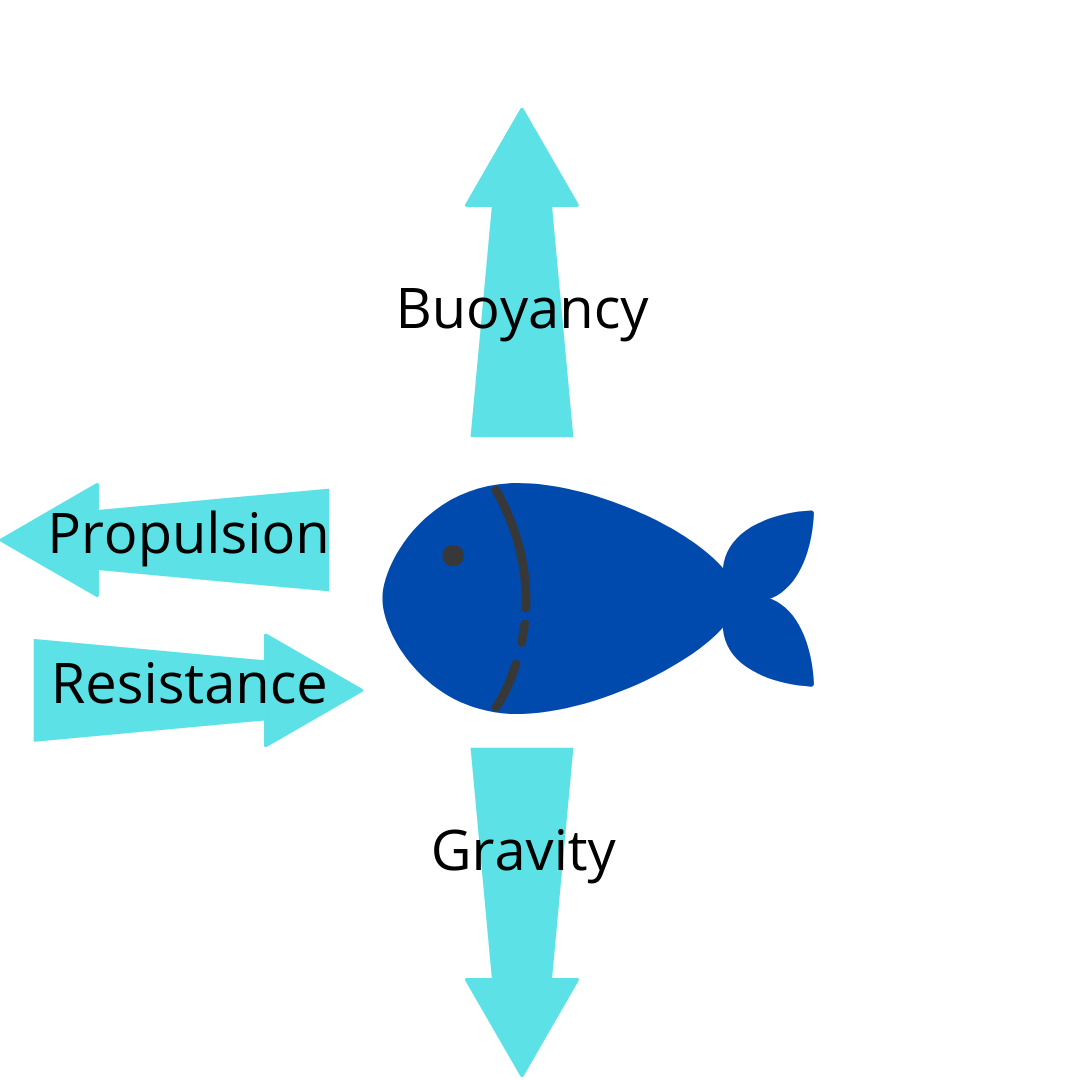Hydrodynamics
Understanding the water
Eureka!
It is told, that in ancient Greece, Archimedes said: “Eureka!”, when taking a bath. “Eureka!” – “I have found (it)” – an exclamation when celebrating a discovery. It was Archimedes who discovered one of the most fundamental concepts of physics, when he realized, that how much water was displaced from the tub depended on how much of his body was immersed.
You might be familiar with the sentence:
“A solid heavier than a fluid will, if placed in it, descend to the bottom of the fluid, and the solid will, when placed in the fluid, be lighter than its true weight by the weight of the fluid displaced.”
- Archimedes of Syrakus
Meaning, that the higher the body volume is, the more water will be displaced. And because our bodies have a higher mass flow than water, we will float (or create static buoyancy).
As the model Mrs Shifu is holding shows, we are constantly working with opposing forces. To gain the benefits of the forces, which are different in water compared to on land, we need to know qualities:
- Propulsion are created by pushing, pressing or sweeping the water, making us move in the wanted direction. When wanting to move fast or slow, propulsion is essential. The better you are at moving the water with your hands, feet or other body parts, the faster you can get up, down, forwards or backward.
- Resistance in water is caused by ourselves. We create it with our body, bodyparts and props, e.g. by filling too much in the water or not relaxing in the muscles. It can also be caused by friction, e.g. clothes or bathing shorts.
- Gravity keeps us on the ground. The core of the Earth pulls us towards the planet and keeps us from suddenly flying out into space. Gravity is here at all times. On land, it feels different than in water because the molecules in the water are closer than in the air.
- Buoyancy can be both static and dynamic. Dynamic buoyancy is created by us, pushing or pressing the water or in another way moving us to stay afloat. Static buoyancy happens when we are floating without any form of movement. Some float better than others, but everybody can float.

Newtons’ third law tells us, that for every action there is an equal and opposite reaction. The forces of the water ables us to float and moving. Not before we can manage the water with our body, can we control the direction or position of the body in the water
